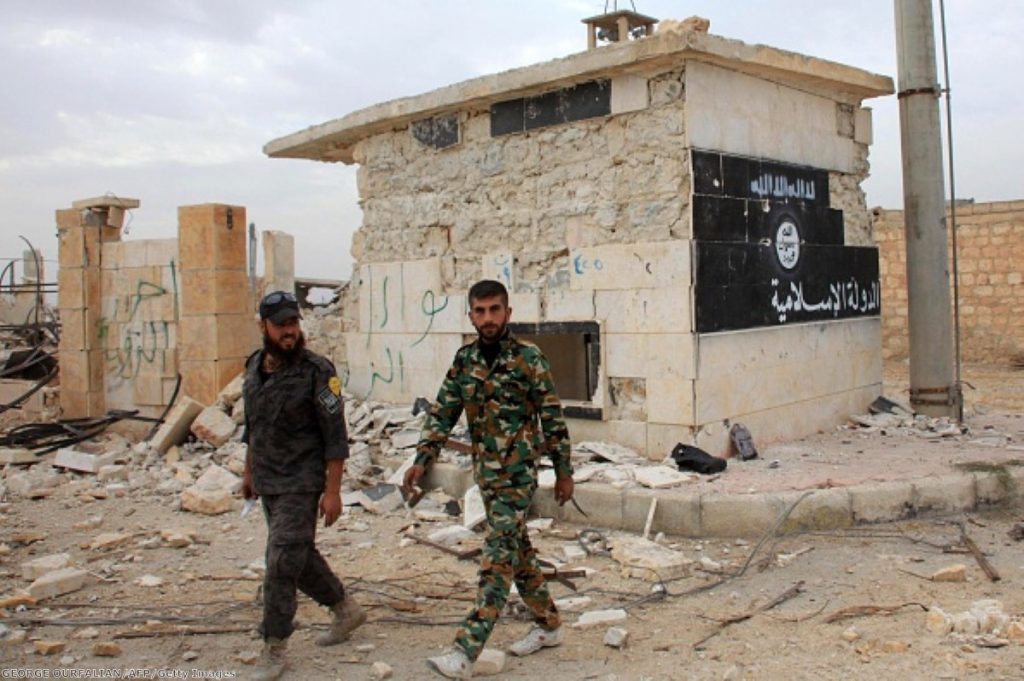Comment: Cutting ties with Saudi Arabia won’t eliminate Isis
By Alastair Sloan
It has become fashionable to advocate cutting ties with Saudi Arabia as a way to get rid of ISIS. This view betrays a deep naivete about how the terror group is funded, the relationship between them and the rulers of Saudi Arabia, and also obscures the far more credible reasons to dramatically curtail our relationship.
Many people seem to think that rich donors in Saudi Arabia are funding ISIS. Some even go so far as to say the Saudi government are sending money themselves, or at least turning a blind eye – a ludicrous assumption which we shall examine shortly.
Last year, I spent a great deal of time speaking to former and current U.S. Treasury Department officials who had experience of terror financing to both Al Qaeda and ISIS, exclusively within the Gulf states. They were a smart bunch of people. A strong message came out – the relative importance of Saudi Arabian citizens funding ISIS is minimal. Not only have these donations dramatically decreased, but ISIS now has its own funding supplies – primarily local “taxes,” then oil sales (although, again, these have been vastly exaggerated).


It used to be quite easy to smuggle truckloads of cash over the northern border of Saudi Arabia and into ISIS hands. This isn't the case any more – mainly because the government have stationed tens of thousands of troops along the border to prevent ISIS getting in (and money getting out). They've also bolstered their intelligence capabilities, according to some sources. The Saudis have got fairly robust controls on wire transfers, which leaves just one route open – a terror financier flying to Istanbul with a big suitcase full of dollar bills, and smuggling it over the Turkey-Syria border. Surprise surprise – you can't fit many dollar bills in a big suitcase. You certainly can't hand ISIS, who are financially self-sufficient, an amount of money that's going to convince them you're an indispensable financier.

Second – it's important to understand the existential threat that ISIS poses to Saudi Arabia, or more specifically – the House of Saud. Top of mind in Riyadh is the menacing precedent of the Siege of the Grand Mosque in November 1979, which saw five hundred Salafi extremists take fifty thousand Muslim pilgrims hostage, who were conducting their dawn prayers inside the Mosque, the holiest site in the holiest city of Islam – Mecca.
The extremists, like those of the ISIS, were numerous, well organised and well armed. They smuggled in their guns in coffins and underneath long robes, took control and declared their leader, Juhayman ibn Muhammad ibn Sayf al Otaibi, was a new messiah. It was all very reminiscent of the extremist apocalyptic rhetoric professed by ISIS today. And it's exactly what they would do to Saudi Arabia right now given half the chance. The idea that the Saudi government would run this risk again is literally nonsensical.
King Khalid was deeply embarrassed, had to storm the mosque by force, ramming armoured personal carriers through the gates, firing shells into the minarets (where the extremists had positioned snipers) and gassing those remaining in the tunnels underneath. It took two weeks to re-gain control of Islam's most holy site. It was hugely embarrassing – the formal title of the King of Saudi Arabia is "Custodian of the Grand Mosque" and if the House of Saud can't keep Islam's holiest sites safe, their legitimacy evaporates.
There is an argument which says Saudi Arabia must be sanctioned because their clergymen created the ideology that underpins ISIS. There is of course a great deal of truth to this – ISIS salafism has a great deal to do with the billions that Saudi Arabia has disseminated to mosques across the Muslim world. Yet this funding campaign began decades ago, and in many ways the horse has already bolted. It's also an impractical demand – the House of Saud relies on the Wahhabi sect to stay in power, and wresting control over religious financing from those Wahabbis could well result in the collapse of the Kingdom itself. If you thought the regional instability caused by the collapse of Libya and Syria has been bad – you don't want to imagine how bad it would be if Saudi Arabia collapsed too.
For many decades, the general rule with the House of Saud was that funding of terrorist groups was fine so long as they didn't come home to propagate attacks. This rule was torn up by Al Qaeda in the mid 2000s, when the country endured a prolonged and effective bombing campaign. Eventually, using the exact same tough security measures the Saudis are currently using against ISIS members Saudi Arabia was able to push the micro-insurgency down into Yemen.
At their heart, the House of Saud are a selfish mafia who just want to stay in power – and anything that threatens that, including ISIS, will always be their number one enemy. We would be unwise to shun them – particularly because they are a key source of intelligence on the movements of ISIS. Their motivations for handing over the intelligence are entirely selfish – but given the intelligence is available, we might as well take it.
There are plenty of reasons to moderate our support. That the Saudis crucify protesters and their families, or that the UK is supplying live ammunition for their deadly war in Yemen, should be reason enough. But if you think cutting ties with Saudi Arabia will beat the Islamic State – you're wrong.
Alastair Sloan writes columns about international affairs and human rights for Al Jazeera, Middle East Monitor and The Daily Star in Lebanon. He also contributes to The Guardian and The New Statesman about British politics. Follow him on Twitter.
The opinions in Politics.co.uk's Comment and Analysis section are those of the author and are no reflection of the views of the website or its owners.












